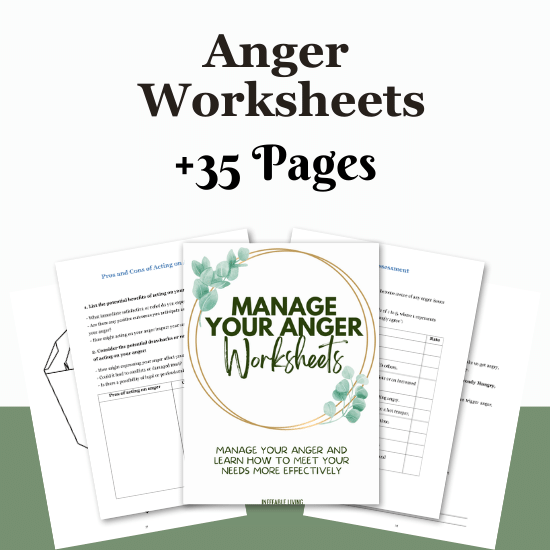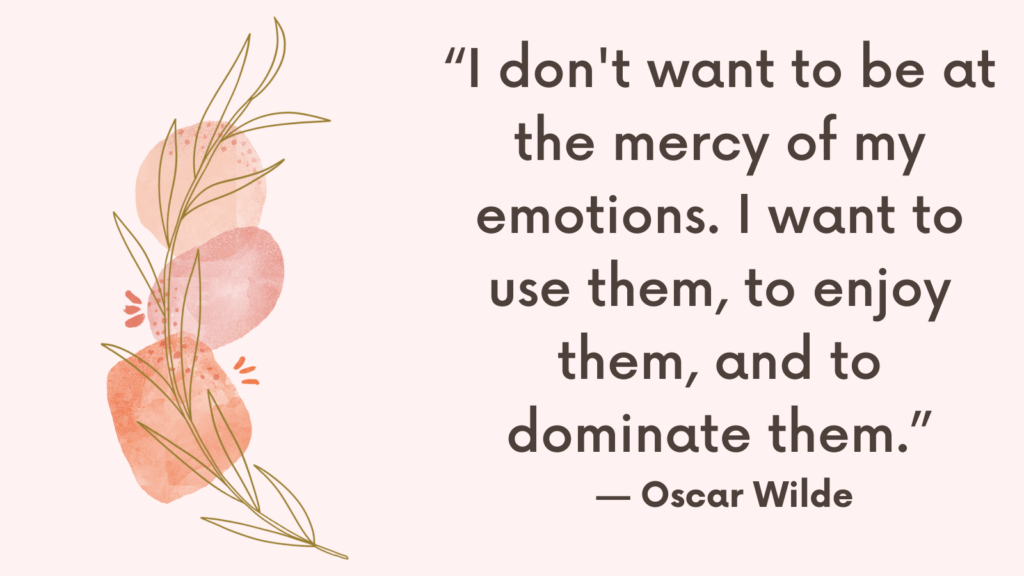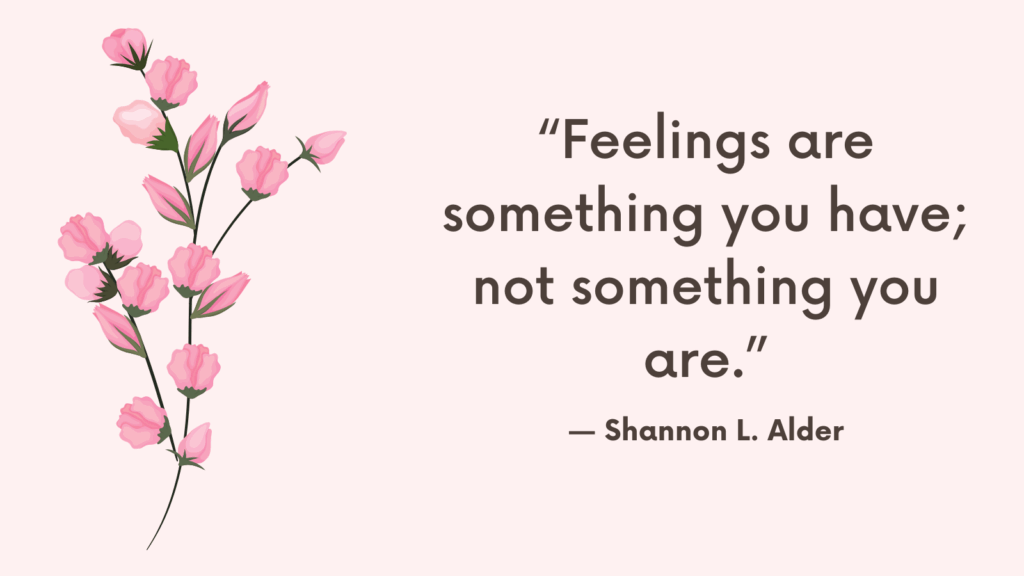Have you ever found yourself doing something impulsive or out of character, without fully understanding why?
This might be an example of acting out, a defense mechanism where distressing thoughts, feelings, or impulses are expressed through actions rather than words.
Understanding acting out and learning how to manage it can significantly improve your emotional well-being and relationships.
What is Acting Out?
Acting out occurs when someone expresses their internal distress through external behaviors.
This can happen because the distressing emotions are too difficult to verbalize or even recognize.
For example, a child might throw a tantrum because they are tired or hungry but cannot articulate these needs.
As adults, we are supposed to develop better coping mechanisms, but sometimes we still resort to acting out when faced with overwhelming emotions or internal conflicts.
How Acting Out Manifests?
Acting out can manifest in various ways, often leading to behaviors that are self-destructive or harmful to relationships. Here are some examples:
– Impulsivity: Engaging in impulsive actions without considering the consequences.
– Inappropriate Anger: Experiencing uncontrollable outbursts of anger.
– Avoidance Tactics: Using substances, excessive gaming, or social media to escape emotions.
– Self-Sabotage: Undermining your own success or well-being.
Related: Compulsive vs. Impulsive Behavior
Recognizing Acting Out in Yourself
Self-awareness is key to recognizing when you might be acting out. Here are some behavioral red flags to watch for:
1. Sudden Impulsivity: Acting on impulse in ways that are out of character.
2. Inappropriate Anger: Frequent, intense anger outbursts that seem disproportionate to the situation.
3. Avoidance: Using activities like gaming, social media, or substance use to escape emotional discomfort.
4. Self-Sabotage: Behaviors that undermine your goals or bring negative attention to yourself.
Related: Impulsive vs Intrusive Thoughts (& How to Manage Them)
Understanding the Underlying Causes
Acting out is often a sign of deeper, unresolved conflicts or unmet needs. Here are some common unconscious conflicts that can lead to acting out:
1. Fear of Success vs. Drive to Succeed: You might sabotage your own success because you fear the responsibilities or changes that come with it.
2. Desire for Independence vs. Need for Security: You may struggle between wanting to be independent and craving the security of being cared for.
3. Wish for Intimacy vs. Fear of Vulnerability: Longing for close relationships but fearing exposure and control.
4. Anger Toward a Loved One vs. Guilt: Feeling anger towards someone you care about and then feeling guilty about that anger.
5. Sexual Desires vs. Societal Norms: Having fantasies that conflict with societal or personal values.
6. Ambivalence Toward Parenthood: Wanting children but fearing the loss of freedom and feeling guilty for these thoughts.
The Impact of Acting Out
Acting out can damage relationships, hinder personal growth, and reduce self-awareness.
When you act out rather than reflect on your emotions, you miss the opportunity to process and understand your true feelings.
This makes acting out one of the more primitive defense mechanisms, keeping your deeper emotions hidden and unaddressed.
Related: Top 14 CBT Exercise For Anger Management (+FREE Anger Worksheets)
Strategies for Managing Acting Out
Managing acting out involves recognizing distressing emotions and transitioning to more adaptive coping skills. Here are some practical strategies to help you:
1. Develop Emotional Awareness
Understanding your emotions is the first step to managing acting out. Ask yourself the following questions:
– What am I feeling right now?
– Is this behavior consistent with my values and personality?
– Do I feel in control, or does it seem like my behavior is driven by an external force?
Related: Anger Rumination: Top 10 Tips to Let Go
2. Practice Journaling
Writing down your thoughts and feelings can help you process your emotions and gain insight into your behavior.
Regular journaling allows you to reflect on your day and identify any patterns in your emotions and actions.
Set aside time each day to write about your experiences, focusing on any strong emotions or unusual behaviors.
Over time, you might notice patterns that reveal underlying conflicts or unmet needs.
3. Engage in Creative Outlets
Creative activities can provide a non-verbal way to express and process your emotions.
This might include drawing, painting, playing an instrument, or even dancing.
Choose a creative activity that you enjoy and make time for it regularly. Use this time to focus on your emotions and express them through your art.
Related: Anger Iceberg: How to Use It (+FREE Anger Iceberg Worksheet PDF)
4. Incorporate Physical Activity
Physical activity can help manage the energy and tension that might otherwise lead to acting out. Exercise also promotes overall well-being and reduces stress.
Find a form of exercise that you enjoy, whether it’s running, yoga, or team sports, and incorporate it into your routine. Physical activity can help you release built-up tension and improve your mood.
5. Practice Mindfulness and Relaxation Techniques
Mindfulness and relaxation techniques can help you stay grounded and manage stress.
Practices such as deep breathing, meditation, and yoga can help you become more aware of your emotions and reduce impulsive behaviors.
Start with simple mindfulness exercises, such as deep breathing or a short meditation session.
Gradually incorporate these practices into your daily routine to help manage stress and improve emotional awareness.
Related: Best 8 Mindfulness Exercises For Adults That Will Help You Regulate Your Emotions

Conclusion
Acting out is a defense mechanism that can hinder your self-awareness and damage your relationships.
By developing emotional awareness, practicing journaling, engaging in creative outlets, incorporating physical activity, and practicing mindfulness, you can transition from destructive behaviors to more adaptive coping skills.
Recognizing the need for professional help and seeking therapy can further support your journey towards emotional well-being.
Remember, understanding and managing acting out is a process that requires patience and commitment, but the rewards of improved relationships and personal growth are well worth the effort.



